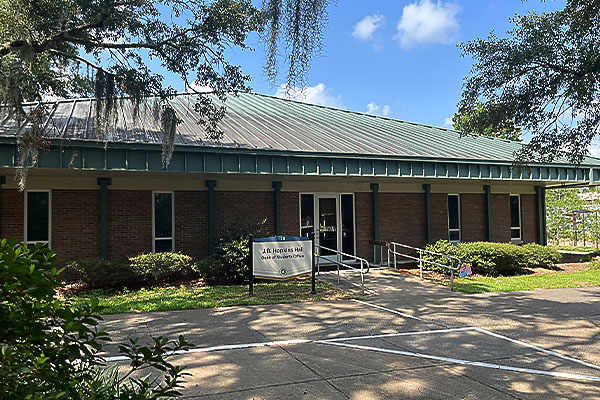Students
This section outlines Frequently Asked Questions and Common Terms.
Frequently Asked Questions (FAQ) on Student Conduct
In accordance with the Student Code of Conduct and the Student Code of Academic Conduct, you are entitled to have any one person serve as your advisor. You must provide the name and role of the advisor to the Dean of Students Office in writing at least three business days prior to any scheduled meeting/ hearing.
Charges by public authorities will not prevent the University from charging you or your student organization with violations of the Student Code of Conduct. If you are charged by outside authorities with an act that is also a violation of a University regulation, policy or the Student Code of Conduct, the University may but is not required to delay its proceedings pending the outcome of the off-campus proceeding. The University reserves the right to amend its charge (s) based on information obtained through an outside proceeding when that information is relevant to activity adversely affecting the University community. If the outside charges are dismissed, or not prosecuted/ not heard, or if adjudication of guilt is withheld, such action will have no bearing on the University charges.
No, conduct processes would continue without your participation.
Sanctions can range from a disciplinary reprimand to expulsion, depending on prior conduct history, the severity of the violation, mitigating circumstances, and aggravating circumstances.
The University will place a hold on your records or registration.
Yes, any student or student organization found responsible for violating the Student Code of Conduct may appeal the decision and/ or the sanctions by submitting an appeal, in writing, to the Vice President of Enrollment and Student Affairs within 10 business days of the date of the decision letter. Students or student organizations found responsible, by the Academic Misconduct Hearing Board, for violating the Student Code of Academic Conduct may appeal by filing a written appeal with the Office of the Provost within 10 business days of the hearing decision notification letter.
All appeals are limited to grounds noted in Article VIII of the Student Code of Conduct and/ or the Student Code of Academic Conduct.
Yes, the University will make available, upon request by the charged student or student organization, copies of his/ her case file.
If you are found responsible for alcohol and/ or drug violations of the Student Code of Conduct, the University may, under certain conditions, contact your parents/ guardians. Refer to the Parental Notification Policy for more information.
Employers requiring a background check, disciplinary clearance or dean certification may request access to your disciplinary record. However, students must sign a release authorizing such access.
Sanctions are designed to help students learn and grow from their experiences. Failure to complete sanction (s) may result in Student Code of Conduct charges filed and/ or an OSRR hold being placed on your account. An OSRR hold could result from failure to resolve an issue. Such holds may impose restrictions including but not limited to the ability to register for classes, or request for a transcript, or withhold the issuing of a degree/ diploma.
| Common Terms | Definition |
|---|---|
| Standard of Proof | The standard of proof used to determine the student's responsibility is based on a preponderance of evidence. This means that the information presented supports the finding of whether it was more likely than not that the violation of the Student Code of Conduct or the Student Code of Academic Conduct occurred. |
| Advisor | The term advisor refers to any one person chosen by the respondent, alleged victim, or witness to aid them through the disciplinary process. This includes an advocate or legal representative. |
| Disciplinary Probation | Disciplinary probation is a written disciplinary sanction notifying a student or student organization that the behavior is a serious violation of University standards. Any additional violations occurring during a probationary period may result in more serious sanctions. |
| Sanctions |
Sanctions are designed to help students learn and grow from their experiences. Failure to complete sanction(s) may result in Student Code of Conduct charges filed and/ or an OSRR hold being placed on your account. Sanctions can range from a disciplinary reprimand to expulsion, depending on prior conduct history, the severity of the violation, mitigating circumstances and aggravating circumstances.
|
| OSRR Hold | An OSRR Hold could result from failure to resolve an issue. Such holds will impose restrictions, including but not limited to the ability to register for classes, request a transcript, or withhold the issuing of a degree/ diploma. |
| Suspension | A student who is suspended is required to leave the University for a specific period of time. A student suspended for violating the Student Code of Academic Conduct may not visit or come onto any UWF campus without specific written permission of the Provost. A student suspended for violating the Student Code of Conduct may not visit or come onto any UWF campus without specific written permission of the Vice President of Enrollment and Student Affairs. |
| Expulsion | A student who is expelled is permanently deprived of the privilege to continue at the University in any capacity. A student expelled for violating the Student Code of Academic Conduct may not visit or come onto any UWF campus without specific written permission of the Provost. A student expelled for violating the Student Code of Conduct may not visit or come onto any UWF campus without specific written permission of the Vice President of Enrollment and Student Affairs. |
The Student Code of Conduct, the Student Code of Academic Conduct, and all other University policies and regulations are available on the Policies and Regulations page.




